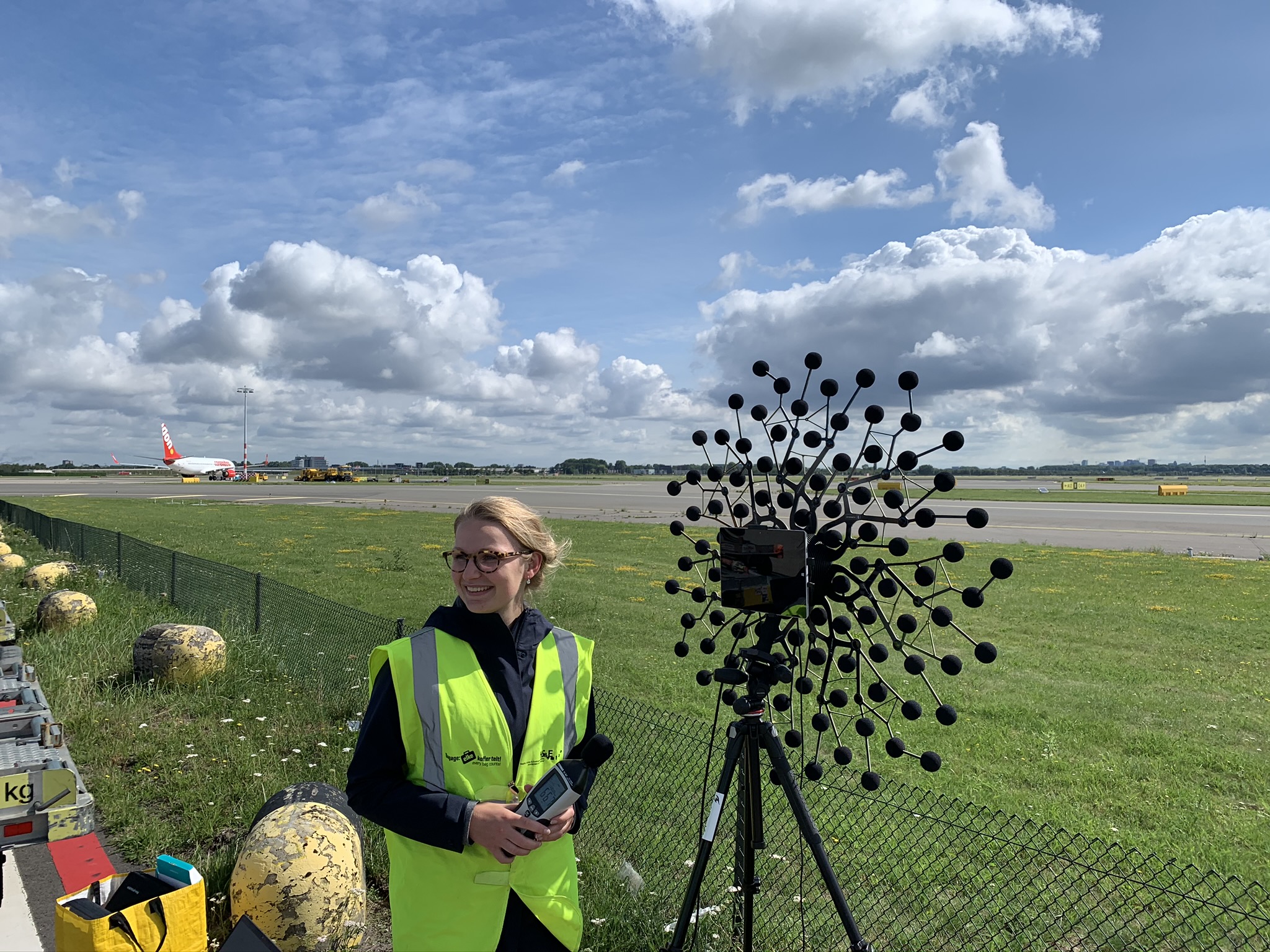Starting a PhD at the beginning of the lockdown brought challenges and unexpected opportunities for Bieke von den Hoff. “Finding work in the aerospace sector is a big issue.”
(Photo: Wouter Dalmeijer)
“I took a one-month holiday between my master’s graduation and the start of my PhD and in the last two weeks I already had the feeling I might have to start my PhD from home. On the first day of the lockdown, I knew I still had access to the building so I went there to pick up the stuff that I left from my MSc thesis project and to talk to my supervisor. In the beginning I thought the lockdown was not so bad. I was hoping it would be maybe two or three weeks and then we could get back to the faculty, but then it turned out to be longer. I already knew my way around the faculty so I was lucky that way. It was a new situation and I was not completely sure what to do, but for me it wasn’t as difficult as it would have been if I was a newcomer at the faculty.
I knew most of the PhDs in my department from my MSc thesis, but it was a bit of a step to really connect and let people know that I had started with my PhD. However, they were very open to Skype coffee breaks, which was fun and helped me a lot. I had difficulty with the work-life balance at first. I would easily get distracted at home. I need a clear distinction between work and private life. When working from home I would have difficulty closing down and saying this is enough. But I think this is something you have to learn in any case when you do a PhD. Especially for publications, are you going to follow up on one more recommendation before you send it in? Because you can always do more, go deeper into the subject and the data, try something extra. When is it good enough to give you a result or when are you satisfied? I really hope to learn that.
At the end of April, I was meeting with my supervisor and she told me she had been contacted by Royal Schiphol Group. They were doing a pilot programme to test the TaxiBot (a hybrid electric aircraft towing vehicle). They hadn’t planned on doing any noise measurements because it’s difficult to separate the constantly varying background noise levels from the actual noise levels. But since the airport was empty, they wanted to measure it to see what effect it would have on their groundworkers. Not knowing when air traffic was going to start up again, it all happened very quickly. Within three weeks we set up the whole plan and went there to do the project.
‘It was a pretty cool experience to be out on the tarmac’
Currently I’m focusing on the acoustic impact of sustainable aviation innovations. The TaxiBot fits in because it is a sustainable idea as it is expected to significantly reduce the amount of fuel usage during taxiing, and my part of the project is researching the acoustic impact of that idea. They cleared a zone for us on airside between two piers and we were not allowed to cross out of it for safety reasons. For the tests, the pilot and the aircraft together with the TaxiBot, drove a few rounds in front of us and our microphones so that I could measure the noise each time. In the meantime, four or five other aircraft passed by and they said that this was quite busy under the circumstances. It was a pretty cool experience to be out on the tarmac!
I was initially thinking of working at a research institute for a few years and then coming back for a PhD once I figured out if I was fit for research. Around the time of my MSc thesis midterm we started discussing PhD positions, what a PhD trajectory entails and what qualities are needed, and it felt like a good choice. In the end I chose to do the PhD because I really liked the subject they proposed.
Right now in the aerospace industry, finding work for new graduates is a big issue. I have a few friends that already had plans and they were in the interview process with different companies. All interviews got postponed and they have to wait until at least September and some now are considering research positions to bridge the gap. Some are now thinking more seriously of doing a PhD than before because it’s a bit more of a safe option. I see that they are now not only focusing on the aerospace sector, but also spreading out a bit more towards data science or computer engineering. I think they still have enough opportunities and some interviews are continuing but it’s a challenging time.”
- In this special series, Delta took a personal look at how Covid-19 and the lockdown impacted the people who work or study at TU Delft. This episode is the last one. After the summer break, we will start a new series featuring people who are involved in the OWee. Have a tip? Send us an e-mail at humansoftudelft@gmail.com
Heather Montague / Freelance writer



Comments are closed.